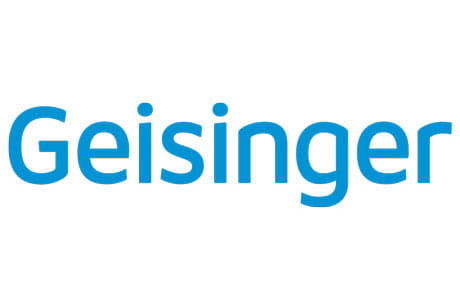Regeneron Genetics Center discovers gene mutations that protect against obesity
Study included data from Geisinger’s MyCode Community Health Initiative
As part of the research that led to the finding, published in Science, RGC scientists analyzed deidentified genetic and associated health data from 645,000 volunteers from the United Kingdom, United States and Mexico, including participants in Geisinger’s MyCode Community Health Initiative.
It is estimated that more than one billion people will be suffering from severe obesity (body mass index [BMI] of 35 or higher) by 2030. Working with collaborators, RGC scientists found that individuals who have at least one inactive copy of the GPR75 gene have lower BMI and, on average, tend to weigh about 12 pounds less and face a 54% lower risk of obesity than those without the mutation. Protective mutations were found in about one of every 3,000 people sequenced.
“This is a potentially game-changing discovery that could improve the lives and health of millions of people dealing with obesity, for whom lasting interventions have often been elusive,” said Christopher D. Still, D.O., director for the Geisinger Obesity Research Institute at Geisinger Medical Center. “While the behavioral and environmental ties to obesity are well understood, the discovery of GPR75 helps us put the puzzle pieces together to better understand the influence of genetics. Further studies and evaluation are needed to determine if reducing weight in this manner can also lower the risk of conditions commonly associated with high BMI, such as heart disease, diabetes, high blood pressure and fatty liver disease.”
Regeneron scientists, collaborating with scientists at New York Medical College, replicated their finding in mice that were genetically engineered using Regeneron’s VelociGene® technology to lack copies of the GPR75 gene. Such mice gained 44% less weight than mice without the mutation when both groups were fed a high-fat diet. Regeneron scientists are pursuing multiple therapeutic pathways – such as antibody, small molecule and gene silencing approaches – based on this newly discovered genetic target.
“Discovering protective genetic superpowers, such as in GPR75, provides hope in combating global health challenges as complex and prevalent as obesity,” said George D. Yancopoulos, M.D., Ph.D., co-founder, president and chief scientific officer at Regeneron. “Discovery of protective mutations – many of which have been made by the Regeneron Genetics Center in its eight-year history – will allow us to unlock the full potential of genetic medicine by instructing on where to deploy cutting-edge approaches like gene-editing, gene-silencing and viral vector technologies.”
About the Regeneron Genetics Center
The Regeneron Genetics Center LLC (RGC) is a wholly owned subsidiary of Regeneron Pharmaceuticals, Inc. that focuses on early gene discovery and functional genomics. The primary goal of the RGC is to improve patient outcomes by identifying novel drug targets, clinical indications for development programs, and genomic biomarkers for pharmacogenomic applications. The RGC is tackling large-scale sequencing and analytical approaches and has established numerous collaborations with leading human genetics researchers. To enable this large-scale sequencing and analysis program, the RGC utilizes fully automated sample preparation and data processing, as well as cutting-edge cloud-based informatics.
About Geisinger
Geisinger is among the nation’s leading providers of value-based care, serving 1.2 million people in urban and rural communities across Pennsylvania. Founded in 1915 by philanthropist Abigail Geisinger, the non-profit system generates $10 billion in annual revenues across 134 care sites - including 10 hospital campuses, and Geisinger Health Plan, with 600,000 members in commercial and government plans. The Geisinger College of Health Sciences educates more than 5,000 medical professionals annually and conducts more than 1,400 clinical research studies. With 26,000 employees, including 1,600 employed physicians, Geisinger is among Pennsylvania’s largest employers with an estimated economic impact of $14 billion to the state’s economy. On March 31, 2024, Geisinger became the first member of Risant Health, a new nonprofit charitable organization created to expand and accelerate value-based care across the country. Learn more at geisinger.org or connect with us on Facebook, Instagram, LinkedIn and X.

For media inquiries:
Ashley Andyshak Hayes
Marketing Strategist
Marketing & Communications
570-271-8081
arandyshakhayes@geisinger.edu
